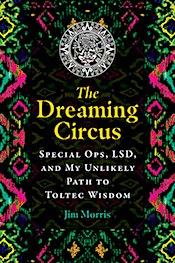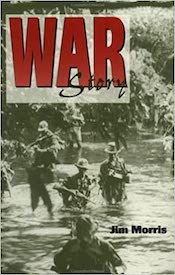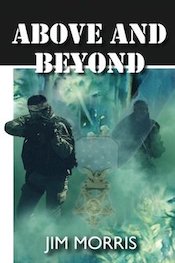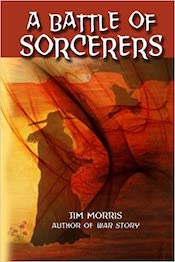Thomas Edison once said that 999 out of a thousand experiments are failures. I think he was specifically talking about his search for the right filament for the electric light bulb, which, of course he finally found.
Check Amazon and you’ll find sword and sorcery novels by the hundreds. They are as popular as popcorn. In them wizards send dragons to fight stableboys who aspire to knighthood, or damsels who are also pretty good with a sword. A Battle of Sorcerers is not one of those books.
There’s another category of sorcery books, the non-fiction experiences of students of shamanism. This started with the twelve books of Carlos Castaneda, and those of his students, Florinda Donner, Taisha Abelar, and Felix Wolf. There are others by people who claim to be students of Castaneda’s teacher, don Juan Matus. These include books by Merilyn Tunneshende, Ken Eagle Feather, and others.
There’s another category of books by don Miguel Ruiz, and his sons and students, which are not autobiographical, but more in the category of self-help books.
So most of the stuff about European magic seems to be fiction and most of the stuff about American magic seems to be “non-fiction”, though there is another whole sub-genre of literature devoted to the proposition that Carlos Castaneda is a fraud.
It should come as no surprise that Castaneda incorporated fictional elements in his non-fiction books, because he admits that up front, as a means of hiding the identity of his characters. Don Juan’s real name, if he ever actually existed, was not Juan Matus, and he may not be Yaqui and he may not be from Sonora. Personally I don’t care about any of that. The techniques work, and that’s all I care about.
But it seemed to me that incorporating those techniques into a fictional adventure story would make for exciting fiction, and might lead some folks into investigating knowledge that could improve their lives in amazing ways, and be a lot of fun in the process.
I’m not the first to have this idea. Robin Rice, who practices and teaches shamanism has written several shamanic novels, starting with the wonderful A Hundred Ways to Sunday. A friend and fellow Special Forces veteran, James Morgan Ayres, who got his spiritual training through the Chinese martial arts, but also has a lot of experience with archeology in Mexico, wrote a novel that kept me entranced, the Jaguar’s Heart.
But none of these has achieved a wide readership, and A Battle of Sorcerers is not off like a rocket either. So the jury is still out on whether this is a good idea or not.
The original idea that finally morphed into A Battle of Sorcerers started fifty-seven years ago when I was nineteen. My grandparents had taken me to a tent revival meeting in Ava, Missouri when I was eight, and that guy’s hellfire and brimstone sermon haunted my dreams for years. The upside was that it started me thinking about esoteric matters. I got this vision that people are extensions of God, like fingers, and that still seems valid to me. The hellfire thing didn’t seem right, but every authority figure in my life professed to believe in it, and acted like they did not. Most confusing.
Then at twelve I encountered the word “agnostic” in a science-fiction story and looked it up. From that I realized that there were plenty of people who did not buy the worldview of Protestant Christianity. Immediately I became an atheist, though I was smart enough to keep my mouth shut about it. There’s no record of Baptists burning anyone at the stake in Oklahoma, but why risk it?
When I was nineteen, still angry with fundamentalism, I got this idea of writing a scathing satire of the story of Jesus. I was nowhere near ready to write it, and there were many subjects I wanted to address first, but it was always in the queue.
I had some problems after the army and Vietnam. Let’s put it this way. I was leading a disordered life after a period of traumatic stress, though if you’d suggested I had post-traumatic stress disorder I would have hurt you. Two things helped me out of that, the Toltec training called The Warrior’s Way and a former airborne first sergeant who had become an Assembly of God preacher in Mustang, Oklahoma. Each of those played off each other in ways that started bringing my life together. I read the Toltec stuff, but also the Bible, four times in three different translations, not cherry-picking verses to reinforce my prejudices, but all of it, to get the whole scope of it.
Boy, taken all together that’s some book.
And I became a believer, not in traditional Christianity, but in the idea that Jesus was a cool guy who had given the best advice ever. I still wanted to write that satire, but now the goal was not to debunk, but to illuminate. I had decided to frame it from the viewpoint of the Centurion who gets his daughter healed by Jesus. It sucked.
Some years later I was visiting my friend Julia Ross in Tahlequah, Oklahoma, when she told me there were so many FBI agents investigating the finances of the Cherokee Nation that they had to build them their own Holiday Inn. That cracked me up. But it occurred to me I could make my novel work if I made my messiah a Cherokee medicine man. The Pharisees became the Keetowah Society and the FBI the Romans. The story wandered from the Biblical account, but that was the idea.
Now, understand that the Apostle’s Creed is no part of my Jesus story. Jesus’ divinity was a Roman idea, and the Romans made gods of Augustus Caesar and Caligula. To my mind Jesus is divine because everybody is, which is a Toltec notion. There is a tradition in India that Jesus spent the missing years there, which may or may not be true, but it’s a fun idea to play with. There is plenty of documentation of Indian fakirs slowing their breath and other bodily functions to an undetectable level and coming back later. That could explain the resurrection. In the story in my mind he did this not as a sacrifice, but as an example that if you do the right thing and hang in there with it you will prevail, even through death.
That wasn’t the resurrection technique John Sky used in A Battle of Sorcerers; he used something I took from Castaneda, but no matter. India wouldn’t work for my novel, but Mexico would.
The rest of it is all shamanism, Toltec and Cherokee. The bad guy, the Raven Mocker, is a character from Cherokee mythology, and my “Centurion”, Dave Perry, prevails through a combination of Toltec and Cherokee shamanism.
It’s hard to explain how much fun it was to write that book. I can only hope it’s as much fun to read it.




